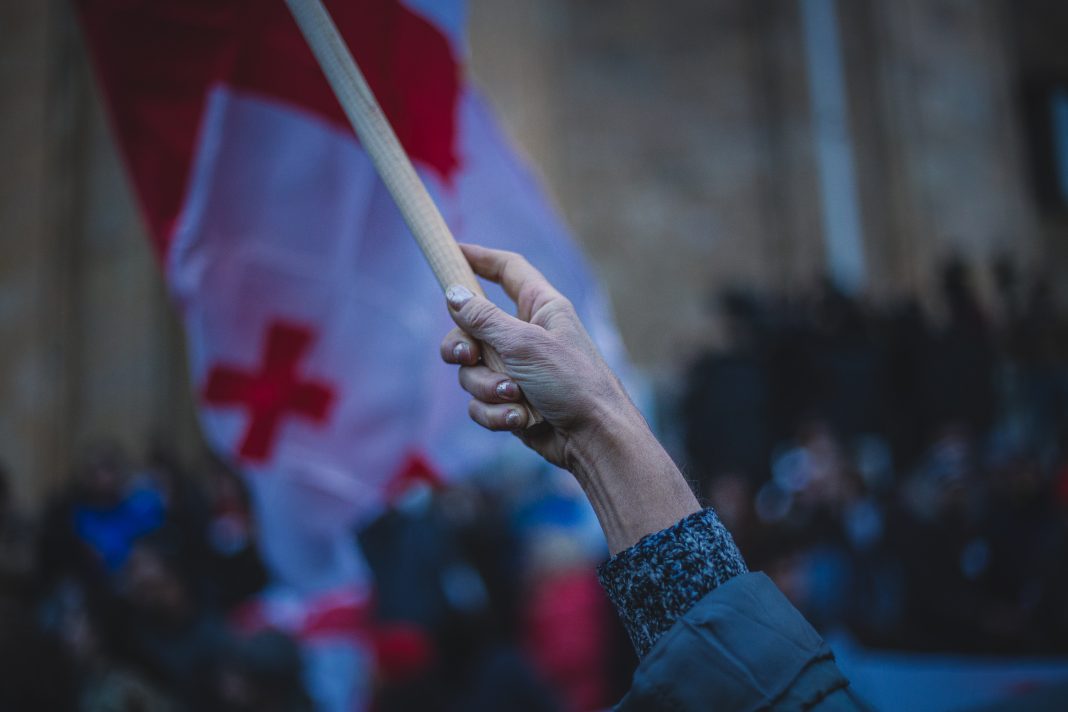In 2024, Georgia will face a complete political reset. On October 26, the country will hold parliamentary elections, after which constitutional changes relating to presidential elections will come into force. Now, the president will be elected in parliament. Therefore, Salome Zurabishvili’s presidency was longer than it could have been – not five, but six years. This was necessary so the new parliament would have the power to elect the president. Another feature of the parliamentary elections: for the first time, they will be held on a purely proportional basis and not mixed, as was the case before. It must be said that for any party in power in the post-Soviet space, abandoning the “majority” is a severe challenge. If we take Georgia, then in the parliamentary elections of 2020, the currently ruling Georgian Dream party did not receive a majority under the proportional system, but without any problems, “gained” the required number of mandates at the expense of the “majoritarians”, where it had 100% success.
Therefore, when on December 30, 2023, the informal leader of Georgia, the “founding father” and “father-maintainer” of the “Georgian Dream” Bidzina Ivanishvili, announced his subsequent return to big politics, it became clear that Georgia had entered a period of political turbulence and fierce election struggle.
This Content Is Only For Subscribers
Batono Bidzina
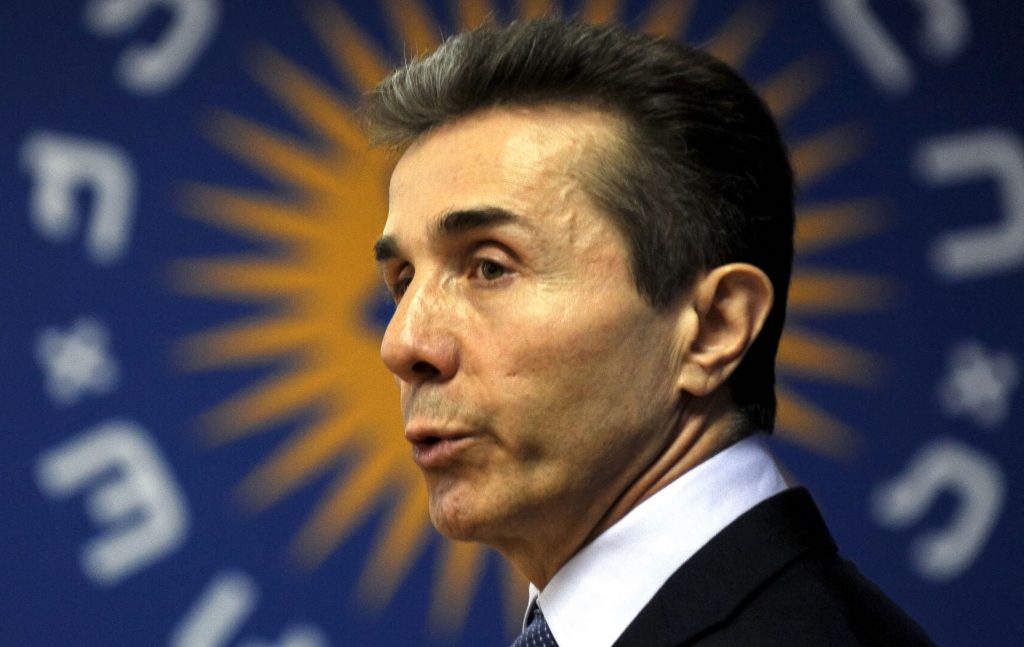
Today, it is impossible to imagine the political “kitchen” of Georgia without the figure of Bidzina Ivanishvili, the only Georgian billionaire and, as his opponents say, the shadow ruler of the country. According to the latest Forbes Real-Time ranking, he is the 545th wealthiest person in the world, with an estimated net worth of $4.9 billion. And according to the Bloomberg rating, Ivanishvili ranks 407th, and his fortune is estimated at $5.95 billion. The expenditure side of Georgia’s consolidated budget for 2023 was about $10.6 billion. Ivanishvili began his business career in Russia in the 90s. His areas of interest lay in the metallurgical and banking sectors. After selling his assets in Russia, he returned to Georgia. True, some experts still have questions about how he managed to sell his holdings in the Russian Federation so easily and quickly before starting his political career in Georgia. Since then, he has often been suspected of having ties to Russia, and the British Guardian even claimed that Ivanishvili still owns a significant stake in Gazprom.
Bidzina Ivanishvili appeared in Georgian politics in 2011 when he decided to become a competitor in the elections of pro-Western President Mikheil Saakashvili. Ivanishvili at one time admired Saakashvili’s reforms, not forgetting to emphasise that he financed many of them. For example, he created a fund for salaries of officials for the first time after the “Rose Revolution” in 2003, maintained the barracks of the Ministry of Defense, and bought cars for the police.
His political brainchild, the Georgian Dream – Democratic Georgia party, uniting the entire spectrum of opposition forces that opposed President Mikheil Saakashvili, won the 2012 parliamentary elections and thereby ended the nine-year rule of the then pro-government United National Movement. After winning the elections in November of the same year, Ivanishvili becomes Prime Minister of Georgia. However, 13 months later, after his party had already won the presidential elections, he announced that he had completed his task and voluntarily resigned as prime minister. However, in May 2018, Mr. Ivanishvili again “returned” to politics. The country’s billionaire and former prime minister was again elected party chairman at the Georgian Dream Congress. As Ivanishvili admitted, the decision to return to politics was quite tricky and was not part of his plans. The main reason for such a step, as in 2011, is, in the words of the ex-prime minister, “Georgia, the Georgian people, their well-being and a worthy future.” In addition, he also mentioned the “deplorable economic situation in the country,” the “destructive campaign of opponents,” as well as “completely unnecessary and harmful to the interests of the country, although still weak, contradictions within the government.” This was the second official “coming” of Bidzina Ivanishvili into politics. His party comrades did not hide their delight. They cited as the reason for the return of the founder of the Georgian Dream the desire to renew and strengthen the party, “to transform it into a political unit of the European type, thereby further promoting reforms in the state.” However, it was not only pathetic words about reforming the party and the state that “returned” Bidzina to big politics.
But it’s worth looking at the process from a different angle. As we know, politics abhors a vacuum. If the leader distances himself from the party, rarely appears in public, and limits himself to a “narrow circle” of people conveying information to him, then not only ordinary party members but also the high-ranking party bureaucracy have a question: where is the Leader? What or who will fill its deficit? Such issues always lead to contradictions within the party. It must be said that being a businessman both by occupation and by mentality, Bidzina Ivanishvili did not distinguish between a business project and party building. He wanted to do everything as in business:
- Get the company in his hands.
- Set things up in it.
- Leave, leaving behind a controlling stake and remotely maintaining his influence.
However, politics is not business; the genre has different laws. In 2018, Ivanishvili returned to the party because intuitively, not only did he feel that his emptiness in the party structure could quickly be filled, but he could lose his “Dream”. In a parliamentary republic, the party is the instrument that brings politicians to power. There is no other way, as they say. In 2018, Ivanishvili put the mask of a possible political usurper on Prime Minister Giorgi Kvirikashvili, who quickly began gaining political weight. At some point, Giorgi Kvirikashvili realised that Georgia was not only Bidzina Ivanishvili and began to play his own game.
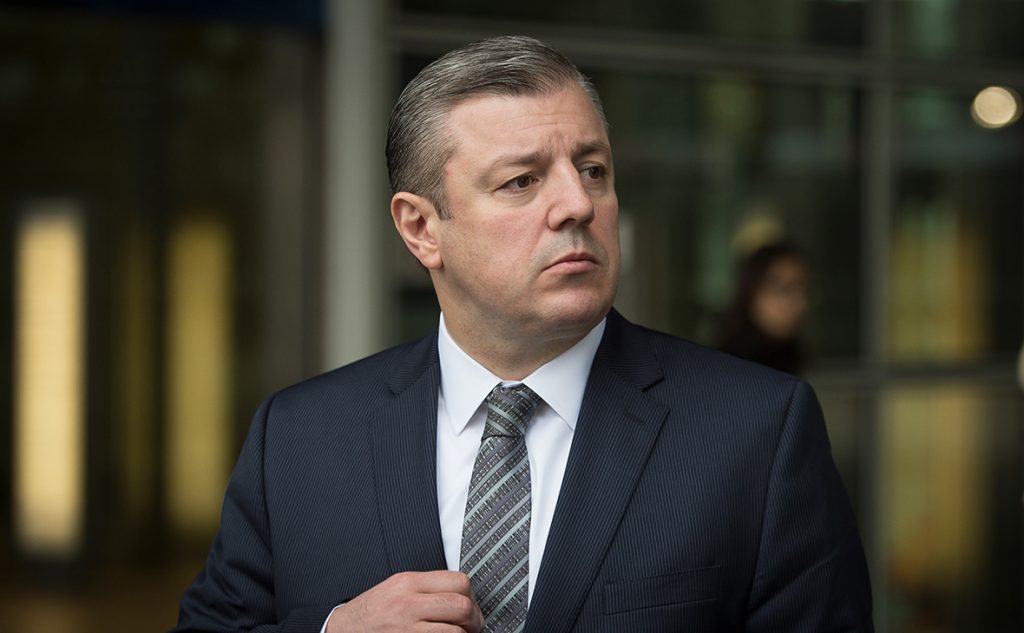
Everything was ready for this: he enlisted the support of financial circles – this was the TBC Group, and built excellent relations with the United States. First, he charmed US Vice President Michael Pence, who arrived on a visit to Tbilisi, and then flew to Washington to meet with Donald Trump and also aroused the sympathy of the American leader. Further on the horizon loomed a joint project with the Americans to build a deep-sea port in Western Georgia – Anaklia. Its construction was conceived under the former President of Georgia Mikheil Saakashvili. The project was called “Lazika” and involved the construction of a deep-water port, a resort area along the coast in the village of Lazika, as well as a city, which was to become a free economic zone (FEZ) with the jurisdiction of British law for business entities operating in the city. Saakashvili emphasised the proximity of the future port to the border with Abkhazia and hoped this would attract the “hearts of the Abkhazians” and deter Russian aggression. In addition, Saakashvili saw the opportunity to turn it into a transhipment point for American military logistics from Europe to Afghanistan with all the ensuing financial and military-political dividends for Georgia.
After the victory of the Georgian Dream coalition in the parliamentary elections on October 1, 2012, the implementation of the Lazika project was terminated, and the project itself was declared inappropriate. However, two years after the Lazika shutdown, the Georgian Dream government announced its intention to implement a similar project in the village of Anaklia, near where Mikheil Saakashvili inaugurated the construction of the Lazika port in 2012. The initiators of the resuscitation of the project were Prime Minister Giorgi Kvirikashvili, who received good support in Washington, and the founder of TBC Bank, Mamuka Khazaradze. They expected to spend $2.5 billion on its construction. In 2016, the Anaklia Development Consortium was created. In addition to the Georgian company TBS Group, the most prominent American company, SSA Marine, was to become the terminal operator in the future port. Another American company, Conti International Group, planned to build a new city, Anaklia City.
The joint Georgian-American project, in addition to business interest, also had a geopolitical vector. Since the Anaklia project fit well into the Chinese megaproject “One Belt, One Road,” it was fundamentally important for the United States to take control of Georgian ports to prevent the Chinese from entering. As a result, the Georgian-Chinese consortium lost the tender, and as they say, not least because of the persistence of the American partners. Flirting with Washington ended for Kvirikashvili with their resignation from the post of prime minister. His “wallet”, Mamuka Khazaradze, fell under the rink of repression and went into opposition to Bidzina Ivanishvili. In January 2020, Georgian authorities terminated the contract with the Anaklia Development Consortium, accusing the investor of failing to fulfil financial obligations. Thus, TBS Group and the American Conti International LLC were suspended from further work due to their inability to attract the promised investments of $400 million to continue the work.
Having eliminated the threat in the person of ex-Prime Minister Kvirikashvili and strengthened the party ranks, Georgian Dream went to the parliamentary elections, which took place in October-November 2020. Ivanishvili’s party received 48.15% of the votes (party representatives took 90 parliamentary seats out of 150) and formed the government. Among the opposition parties, the United National Movement of former President Saakashvili received the most significant number of mandates (36). And already in January 2021, Bidzina Ivanishvili again announced his “final” and “irrevocable” retirement from politics. “I have decided to leave the party forever and completely step away from its rule. I am leaving both the post of chairman of the party and the party itself and returning to normal life, as it was before 2011,” Ivanishvili said in a letter of appeal to party members.
At the same time, he expressed confidence that his departure will not weaken the party but, on the contrary, will strengthen it and make it viable and motivated. “I am confident that the Georgian people will also appreciate my today’s step, which was dictated by the same interests for which I came into politics,” Ivanishvili emphasised. At that time, most experts did not believe in Ivanishvili’s sincerity. They considered his statement to be declarative since he could still control Georgia’s executive, legislative and judicial powers, and the control mechanisms were in no way related to his position as head of the party.
The third coming
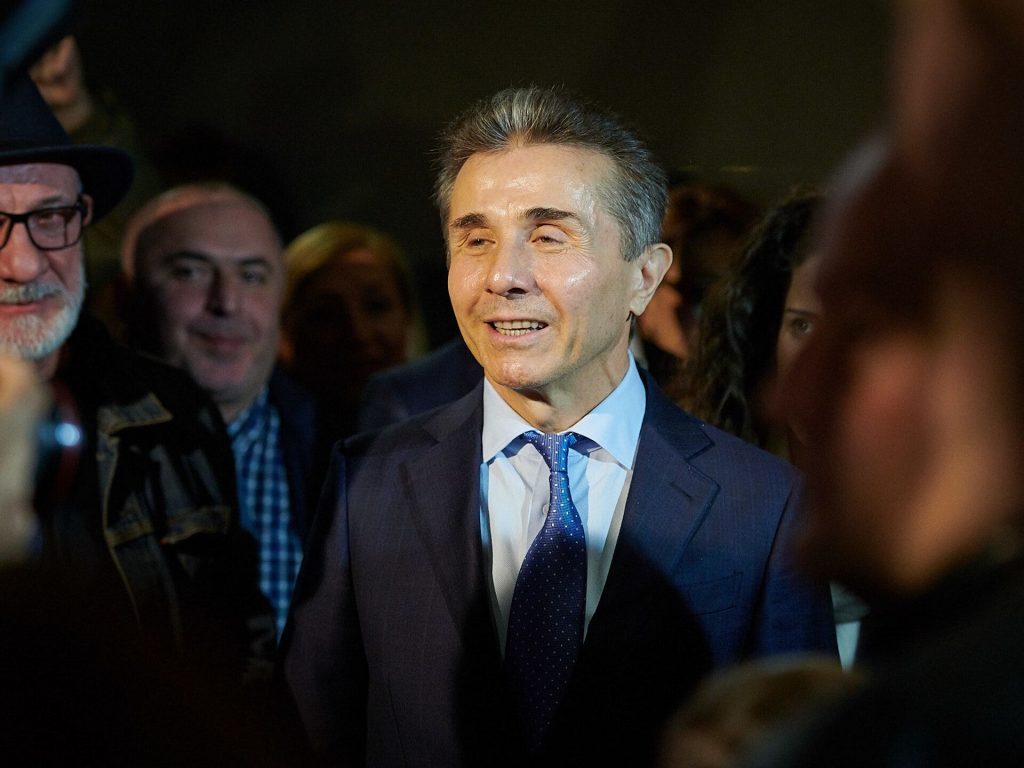
On December 30, 2023, Georgia watched with bated breath the third “coming” of Bidzina Ivanishvili into big politics. Speaking at the Georgian Dream party congress that day, he announced that he had decided to return to Georgian politics after his “final and irrevocable departure.”
At the congress, the establishment of the position of “honorary chairman” was announced, and “the founder of the party and the creator of the democratic turning point of 2012”, Bidzina Ivanishvili, was unanimously elected. From the outside, it may seem that the position of honorary chairman is purely symbolic and more suitable for a political retiree “resting on his laurels.” But Ivanishvili has everything for real: he has received the right to represent prime ministers. According to the constitution, the prime minister is approved by parliament after being presented by the ruling party, but GM does not see any discrepancies. Bidzina Ivanishvili is both parliament and government today. And all the prime ministers are former employees of his Kartu bank. Experts note that Ivanishvili read his speech from a teleprompter, and every sentence of his “speech” had a specific meaning. According to him, the ruling party may be about to become mired in corruption and internal disputes, and all because they too-weak opposition has “self-destructed” and cannot control such an intense “Dream”:
“The absence of an opposition can easily make the ruling party dizzy and weaken it… There is a temptation for a contrived confrontation within the party. The risk of corruption also increases, which requires emergency insurance. All this made me make the unpleasant decision to return to politics.”
Ivanishvili drew parallels with his second return to politics – in 2018: “Then I fulfilled my mission, put the team in order again, adjusted the system, and only after that left politics for the second time. Besides, I’ve already reached retirement age.” The Georgian expert community was guessing and looking for a valid reason for Ivanishvili’s return. And it was unlikely to be explained only by the approaching elections.
The ruling Georgian Dream party has remained in power for more than ten years, and 2024 promises to be the year of its subsequent re-election for a fourth term. There are all the conditions for this: rapid economic growth, disparate opposition, and recently received status as a candidate country for the European Union. It seems that the current Georgian leadership needs not to spoil anything to guarantee victory in the parliamentary elections scheduled for the fall. Ivanishvili speaks about this: “If elections were held today, “Dream” would receive 90–100 of the 150 mandates in parliament, even without an election campaign,” he said. And he immediately supplements himself: “…accordingly, my main goal is not the pre-election strengthening of the party, but the protection of an overly strengthened party from human temptations.”
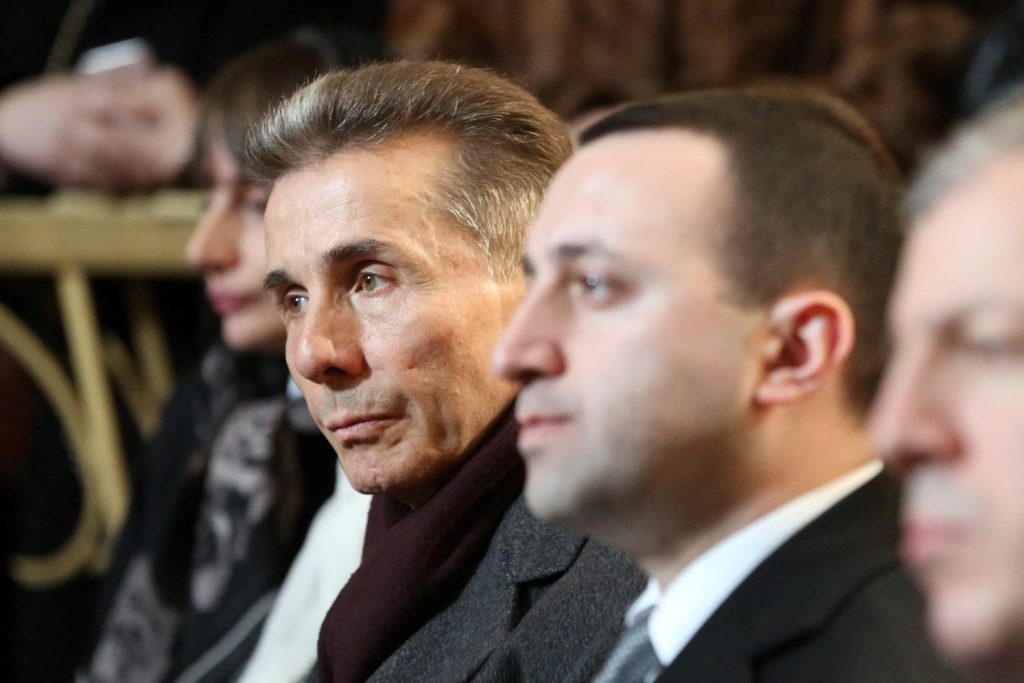
The honorary chairman at the congress also stated that he would not become prime minister and would not change the current head of government. However, a month passed, and on January 29, 2024, Irakli Garibashvili said goodbye to the post of prime minister. For the second time. Political scientist Gia Khukhashvili, a former adviser to Ivanishvili, commented as follows on the frightened faces of the Dream leaders after Ivanishvili’s New Year’s address:
“They had the illusion that they were in control of something. Now she has disappeared. Ivanishvili should roughly punish someone. According to Ivanishvili, the system’s stability is built on absolute power; he does not need political partners. He used to manage everything over the phone for a while. And then these little boys started making money; they had new ambitions.”
At first glance, there are no external signs of a possible split in the Georgian Dream. The departure of Prime Minister Garibashvili and his replacement with Irakli Kobakhidze, who previously served as chairman of the ruling party, did not cause any public scandals or mutual accusations. However, this is hardly a reliable indicator of party unity. Internal conflicts in the Georgian Dream rarely come to light. Here, it is appropriate to remember that Bidzina Ivanishvili’s second return to politics “miraculously” coincided with the strengthening of Prime Minister Giorgi Kvirikashvili, who was considered one of the most successful Georgian prime ministers.
As you know, history repeats itself once in the form of a tragedy and another time in the form of a farce. Irakli Garibashvidi is also considered one of the most famous Georgian politicians. And his resignation from the post of prime minister again “coincided” with the return to politics of Bidzina Ivanishvili.
Undoubtedly, Ivanishvili has a unique “sense” for threats. Power and its preservation are the main engines of all his activities. By rotating personnel in official positions, Ivanishvili is trying to direct his elected officials’ energy in a safe direction for him. After all, the people who surround Ivanishvili have changed. They became rich, matured, expanded their networks of influence, strengthened their “teams,” and acquired influential external connections. These figures can no longer be removed from the political board as quickly as the 2012 coalition partners. Ivanishvili cannot allow that at some point, his “protégé” who has gained “weight” and strength, simply does not pick up the phone from his “patron”. People who know Ivanishvili say that he may not have contact with this or that leader for months, then begin to show him signs of attention, ask for advice, etc.
Today, the Georgian Dream is less like a monolithic party team. It’s more of a club of interests, where each group has its own: the Kakheti clan has its own, the “Young Guards” have theirs, Ivanishvili’s personal guard led by the Minister of the Ministry of Internal Affairs Vakhtang Gomelauri has theirs, the former football player of the Italian “Milan”, the mayor of Tbilisi Kakha Kaladze is also his own. However, one gets a strong impression that they all understand perfectly well that they have interests only as long as Ivanishvili allows it. And when they go beyond what is permitted, the reaction is lightning-fast.
An ambitious representative of the Kakheti clan
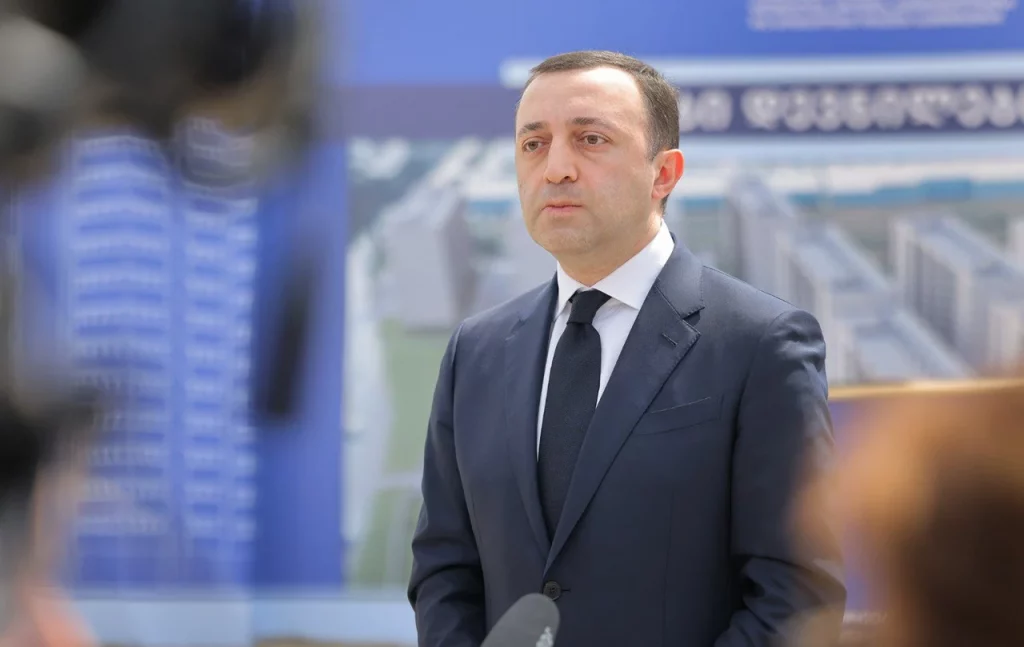
According to popular belief, Irakli Garibashvili came to Ivanishvili’s attention through his friendship with his eldest son while studying in France. Since then, he has become a confidant in various matters. After Ivanishvili left the post of prime minister in 2013, it was 31-year-old Garibashvili who became the youngest head of government in Georgian history. It was the first time he held the post of prime minister for two years. It was removed rudely, as they say, without warning, on New Year’s Eve – December 23, 2015. Expert circles then decided that Ivanishvili was angered by rumours about the corrupt deals of Garibashvili’s relatives.
Political scientist Gela Vasadze recalled that Garibashvili was forced to resign due to the growing influence of the so-called Kakheti clan. Garibashvili’s father-in-law headed this clan, former police officer General Tamaz Tamazashvili: “Indeed, this was quite a serious influence. And Ivanishvili, all these six years that he was in power, solved the classic problem for any power – its preservation. By removing Garibashvili and this “Kakheti clan” from power, which began to control too large a piece of the pie, Ivanishvili solved this problem,” notes Gela Vasadze.
After his resignation, Garibashvili left politics and headed the Chinese direction at the Partnership Fund. Sources note that the Chinese partners took care of his high salary and generally began to support the promising politician. Time passed, and Irakli returned, at first as a party functionary and then as Minister of Defense. In the government, he behaved rather modestly until, in 2021, due to disagreements with the party leadership, the noisy resignation of Prime Minister Giorgi Gakharia occurred. Then Garibashvili got his second chance and again headed the government.
During both terms as prime minister, Irakli Garibashvili was remembered for many things, such as his friendship with Hungarian Prime Minister Viktor Orban and the strengthening of the Chinese vector in foreign policy. During Garibashvili’s visit to Beijing, a strategic partnership with China was announced. The resuscitation of the Anaklia project with Georgia’s desire to quickly and organically integrate into the route of the so-called “Middle Corridor” of the Great Silk Road, leading from China to Europe through Central Asia, fit very well into the logic of the strategic partnership. The visit to Beijing caused a mixed reaction in Georgia at the time. Opponents of the authorities believe that with this step, Tbilisi closed the doors to NATO and the European Union. Nevertheless, it was under Garibashvili’s premiership that Georgia received EU candidate status.
Irakli Garibashvili was not spared from corruption scandals either. The most recent happened last year when the prime minister decided to send his eldest son to study in the United States on a government flight. The charter cost 34 thousand euros. When opposition television companies made a fuss, the prime minister said that his father allegedly paid for the flight: although he is a 71-year-old pensioner, he is engaged in business. “I’m not from a poor family at all,” Garibashvili said. Apparently, for the same reason, he gave his wife a plot of land with a forest at the winter resort in Bakuriani. He collected half-a-million-dollar luxury watches and did not deny himself and his wife expensive cars.
However, one should not assume that Garibashvili was removed only because of corruption. Ivanishvili could not help but notice how Garibashvili’s influence was growing, and he, starting his own game, could simply get out of his influence. His support for the Georgian Orthodox Church, flirting with pro-Russian parties – “Alliance of Patriots”, “Alt-Info”, and good connections in Russia and China were alarming.
Many expected that Ivanishvili’s young comrade-in-arms might think about an independent career after his dismissal. Moreover, this has already happened in the history of the ruling party. In 2021, another young former prime minister from the Georgian Dream, Giorgi Gakharia, went into opposition and founded his party, “For Georgia”. At that time, in popularity ratings, he was the second person in the country after Catholicos Ilia II. True, the campaign organised by Ivanishvili quickly destroyed the influence of the former prime minister, and now his political project can hardly count on serious success in the parliamentary elections this fall.
Garibashvili did not leave either Ivanishvili or politics after his first resignation. He became the chairman of the party, “dishonourable,” as they already joke in Tbilisi. He has many supporters in the conservative electorate and strong positions in some regions. Therefore, Ivanishvili will undoubtedly use it during the election campaign. And after the elections – who knows – Garibashvili may become prime minister for the third time. The “bench” of the “Georgian Dream” is too short.
The Young Guard
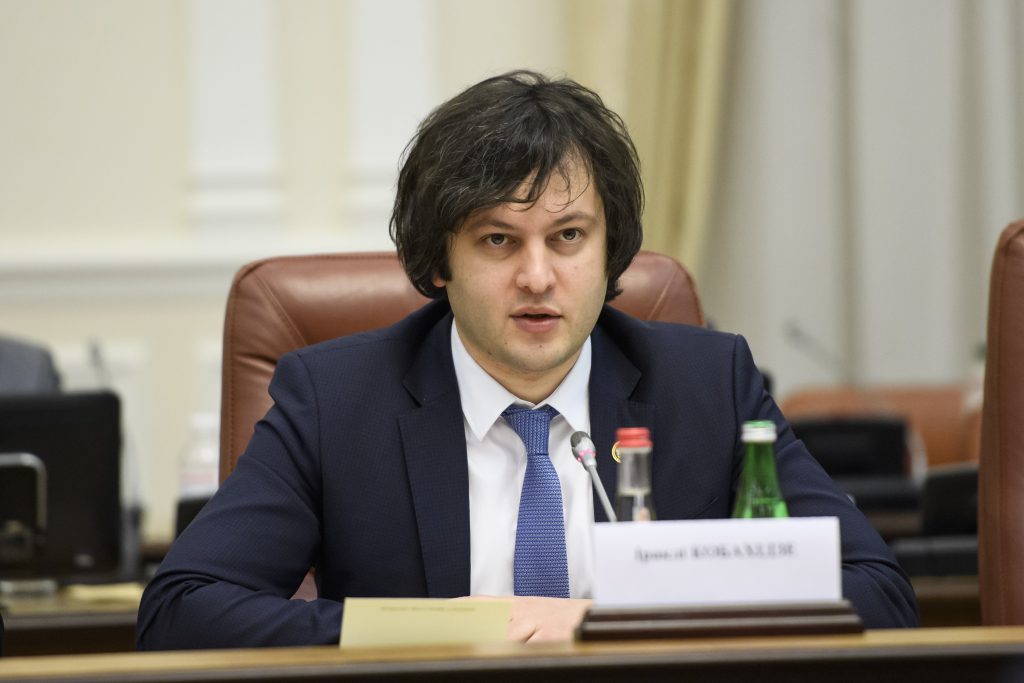
The news that Irakli Garibashvili was resigning and that party chairman Irakli Kobakhidze would take his place was denied to the last by deputies from the ruling party. Both pro-government and opposition television companies had already announced this decision, and the speaker of parliament and Dream deputies were still calling the news “speculation.” The message “This will be better for the country” appeared in the comments, although no one understood why exactly one Irakli was better than the other.
On February 1, at the congress of the ruling Georgian Dream party, a castling officially took place, which is still much debated in Georgia: Irakli Kobakhidze, the head of the ruling party, was nominated as a candidate for prime minister of Georgia, his namesake Garibashvili was “ejected” from the prime minister’s chair “to the chair of the party chairman. On February 8, Irakli Kobakhidze was confirmed as Prime Minister of Georgia. The corresponding decree was signed by the country’s President, Salome Zurabishvili. Previously, 84 parliamentarians voted for the new composition of the cabinet of ministers, headed by the former chairman of the Georgian Dream party, and ten deputies were against it.
Kobakhidze called his government’s main priorities “the peaceful unification of the country” and membership in the EU, but “with the preservation of Georgian dignity.” “Our dream is zero per cent Russian occupation and zero per cent poverty in Georgia,” Irakli Kobakhidze said during a speech in parliament. At the same time, he emphasised that unification with Abkhazia and South Ossetia should occur exclusively through peaceful means. “Georgians, Abkhazians and Ossetians should never shoot at each other again,” the politician said to the applause of his party members and the demonstrative indifference of the opposition.
At the same time, the new prime minister called one of his government’s priorities to further rapprochement with China within the framework of the “strategic partnership” agreement, which Tbilisi and Beijing formalised in July last year under the previous Prime Minister, Irakli Garibashvili. It should be noted that two weeks before his appointment, as part of the party delegation, Kobakhidze attended “shows” in China and met with the head of the international relations department of the CPC Central Committee, Liu Jianchao. In addition, Irakli Kobakhidze, speaking about the “new-old” Cabinet of Ministers, which came under his command almost unchanged, especially singled out the First Deputy Prime Minister, Minister of Economy and Sustainable Development Levan Davitashvili. He is considered the main initiator of economic cooperation with China and is actively lobbying for the invitation of Chinese companies to the long-suffering Anaklia project.
Also, all key figures retained their positions in the new government. Thea Tsulukiani, the former Minister of Justice associated with initiating criminal cases against Mikheil Saakashvili in 2014–2015, remains Deputy Prime Minister and Minister of Culture. The head of the Ministry of Internal Affairs, Vakhtang Gomelauri, is also considered an important player. The authorities believe it to be his merit that after the parliamentary elections of 2020 when the associates of ex-President Saakashvili declared the voting results falsified and tried to organise another peaceful revolution in the country, the Ministry of Internal Affairs (as Irakli Kobakhidze recently admitted) “acted very skillfully and professionally.”
The post of Minister of Foreign Affairs will be retained by Ilya Darchiashvili (formerly Georgian Ambassador to Poland). The only new minister in the government is a professional diplomat, former Deputy Representative of Georgia to the UN, Irakli Chikovani. As head of the defence department, he will replace Juansher Burchuladze, who will soon be appointed the country’s new representative to NATO.
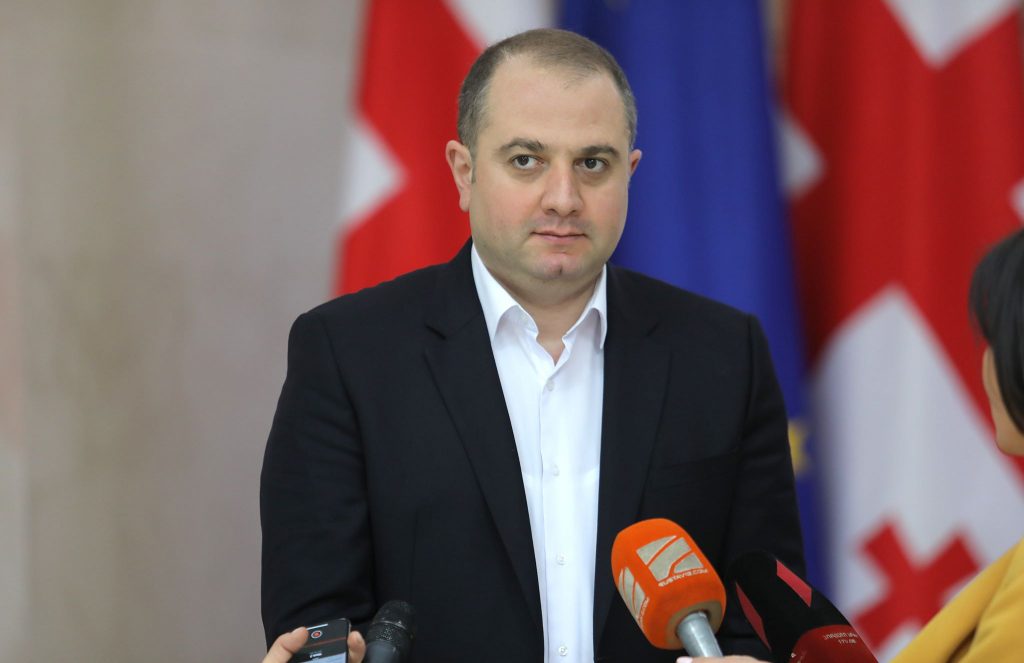
It is worth noting that in 2016, Chikovani tried to become a majority deputy in Zugdidi and loudly criticised the Georgian Dream. The Free Democrats, which included Irakli Chikovani, failed in those elections, and he briefly disappeared from public politics but later became an adviser to Prime Minister Giorgi Gakharia. In 2020, he ran again in Zugdidi – this time from the ruling party and successfully, and when Gakharia went into the opposition, Chikovani, despite his connections with the former prime minister, prudently chose to stay with Dream and was elected vice -Speaker of Parliament. His wife Diana Zhgenti worked as a consul in New York, and today is the Ambassador of Georgia to Poland. From the point of view of hard loyalists, Irakli Chikovani is a weak and unreliable link. His appointment cannot be justified solely by the interests of Kobakhidze or the desire to strengthen electoral positions in the traditionally problematic Zugdidi for the Georgian Dream (today, Chikovani states: “Wherever I am… the interests of Zugdidi and the Zugdidi people will always be the most important for me”). Observers close to the Dream leadership argue that Chikovani can positively influence relations with Western countries and soften Western rhetoric before negotiations on accession to the EU. According to analysts, one should not expect dramatic changes in foreign and domestic policy regarding the government reshuffle.
As the BBC notes, citing Georgian expert Gia Nodia: “Garibashvili seems more sincere in his anti-Western statements. Kabakhidze is just a performer; he will turn the record over very easily. If, hypothetically, Ivanishvili wants to somehow improve relations with the West, Kobakhidze will make it easier because he speaks the same language with Europeans and Americans.”
The new Prime Minister of Georgia, Irakli Kobakhidze, belongs to the younger generation of Georgian politicians; he is the leader of an informal party group of the so-called “Young Guards”. Kobahilze, 45, became Georgian Dream’s seventh prime minister since it has been in power since 2012. A lawyer by training and professor at Tbilisi State University, Kobahilze received a doctorate in law from the University of Dusseldorf in Germany. Before entering politics, he worked in international organisations, including the UN Development Program and the US Agency for International Development.
He began his political career in 2015 as executive secretary of Georgian Dream. During the 2016 parliamentary elections, where Georgian Dream won its second victory, he was deputy head of the ruling party’s election headquarters. After the elections, he became the chairman of the Georgian parliament. In 2019, he lost his post after seating Russian MP Sergei Gavrilov in the speaker’s chair during a Interparliamentary Association of Orthodoxy meeting. The ensuing mass protests in Tbilisi were so violent that Moscow once again stopped air traffic with Georgia. While remaining a member of parliament, in 2021, he took the party’s chairman post and, from there, influenced the agenda in parliament. By the way, he goes to parliament and the university, where Kobakhidze continues to teach law, with numerous security guards, which is not very common in Georgia.
Kobakhidze regularly maintains his image with scandalous statements. He promoted the law on foreign agents, accused Ukraine of trying to drag Georgia into a war with Russia, and spoke about the unacceptability of LGBT propaganda. During the rebellion of the Wagner PMC, Kobakhidze accused the Georgian opposition of wanting “to follow Prigozhin’s successes, to enter with tanks not only Abkhazia and Tskhinvali but also to take Sochi.” His statements often outraged not only the Georgians themselves, but also provoked conflicts between Tbilisi and its partners in the West.
However, it turned out that just such a politician as head of government is precisely what Ivanishvili needs now. Kobakhidze’s undoubted advantages include his brilliant erudition and knowledge in election technologies. One of the Georgian experts noted, “…wake him up at night, and he will tell you in which district of Lanchkhuti, how many people will vote for whom.” He and his partners in the “young guard” managed to “build muscles” and strengthen their influence in parliament and the party. As Georgian expert, Dmitry Moniava notes: “5-6 years ago, the “old guard”, which was losing ground, ridiculed his attempts to unify the views and comments of the deputies of the parliamentary majority, but today they, like middle-level party functionaries, are trained like servants in pre-revolutionary Versailles.”
Kobahilse and his legal partners not only created networks of influence and assumed dominant positions in parliament. They have extended their tentacles to the judicial system because they are well-versed in the functioning and staffing of the judiciary. Until now, Ivanishvili did not allow the “Young Guards” to manage the executive branch, and they, in turn, approached government structures very carefully. Now that the green light is on, they will undoubtedly try to at least partially capture them and, if successful, take a dominant position concerning other Georgian Dream groups.
Mayor-footballer and “personal guard” of Ivanishvili
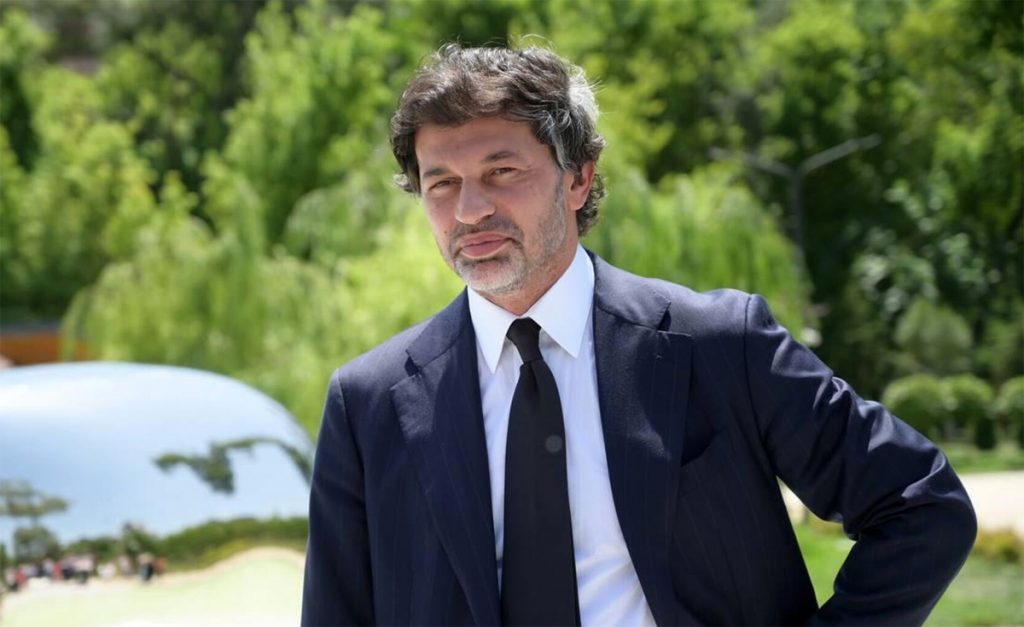
Another centre of influence of the Georgian Dream is undoubtedly the former football player of the Italian Milan and now the mayor of Tbilisi, Kakhaber Karlovich Kaladze. In the party hierarchy, he occupies a prominent position as General Secretary. Bidzina Ivanishvili brought him into politics. Kaladze ran for the Georgian parliament from the Georgian Dream Democratic Georgia party in his homeland in the Samtred constituency and won the parliamentary elections on October 1, 2012. Then, he was Deputy Prime Minister – Minister of Energy during Ivanishvili’s short tenure as the Cabinet of Ministers head. Ivanishvili recalled it this way: “A few days after I made the first statement about entering politics, Kakha Kaladze approached me and asked for a meeting. I jokingly asked him if he would go into politics and where he wanted to play – in defence or attack, and he replied that he wanted to support me and would stand where he needed to serve his homeland.” In the fall of 2017, Kakha Kaladze became the mayor of Tbilisi for the first time, and in 2021, he was re-elected for a second term.
Today, he is called the most popular figure of the Georgian Dream. Those close to Kaladze perceive him as a particular person in the hierarchy. Being in “grain positions” – he was the Minister of Energy and the Mayor of Tbilisi – allowed him not only to create a good resource base for himself but also to acquire a huge number of fruitful connections with resourceful business people, officials and their partners from the upper strata of society. Many of them today are vitally interested in Kaladze remaining the guarantor of their prosperity for many years. They are frightened by the prospect of a possible decrease in his influence.
Kaladze himself understands perfectly well that he is always under suspicion by default. Because the resources that he can theoretically rely on when planning a “rebellion” are too great. In such a situation, any alliance by Kakha Kaladze will become a “catalyst of suspicion” for Ivanishvili. At the beginning of 2018, the newly elected mayor often acted in tandem with Kobakhidze (then Chairman of Parliament). Still, both were weaker at that time and did not have the current resources. A threat also prompted them to act together – the notorious “bankers’ conspiracy”, in which former Prime Minister Giorgi Kvirikashvili was allegedly involved. It took shape mainly in the anxious imagination of Bidzina Ivanishvili, but this is precisely what made it quite possible for the Georgian Dream.
It is no coincidence that critics of the Georgian Dream, especially before the elections, often wrote in the media and social networks that relations between Ivanishvili and Kaladze had become tense to the limit. In such cases, Kaladze usually remains silent or answers through third parties that what is desired should not be considered reality. In recent weeks, the public has been deliberately hinted several times that Ivanishvili’s relationship with Kaladze has once again sharply deteriorated, and the sword of Damocles of anti-corruption investigations is hanging over the capital’s mayor’s office. Kaladze, as always, does not react to rumours but continues to repeat, like a mantra: “The role of Bidzina Ivanishvili in Georgian politics is significant, and I’m not talking only about party interests. I would put his role even higher – this person’s role is special and important for our country, homeland and tomorrow.”
“Siloviki”
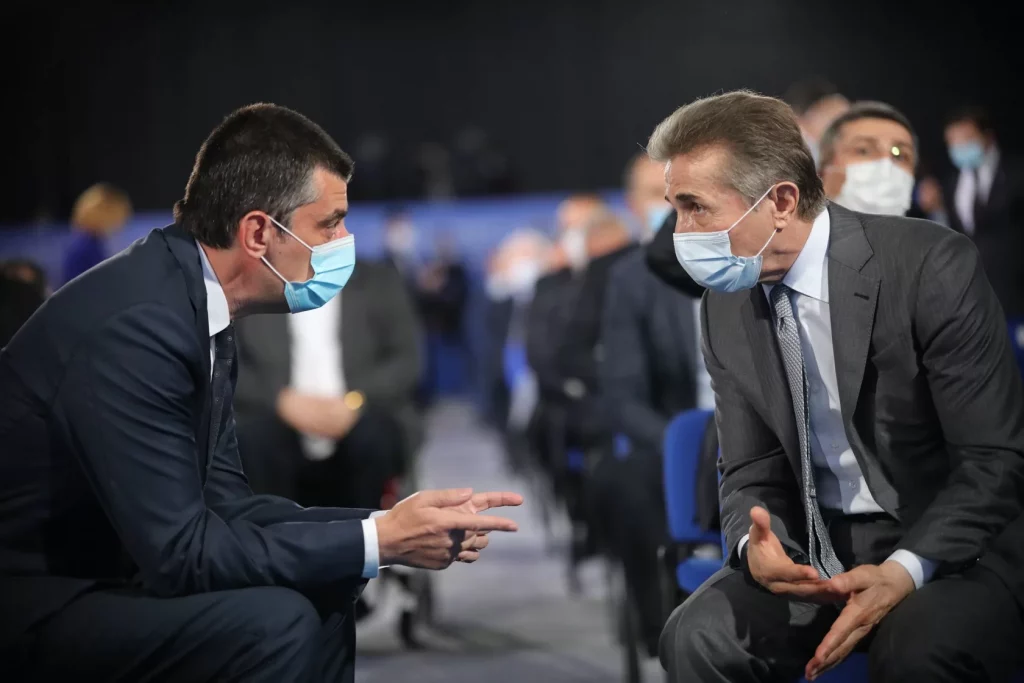
Another informal group in the Georgian system of relationships is the “siloviki”. These are people personally devoted to Ivanishvili, who, according to numerous experts, will never pose threats to their boss. This is the former head of Bidzina Ivanishvili’s personal security and now Minister of Internal Affairs Vakhtang Gomelauri, the Head of the Special State Security Service, Anzor Chubinidze, and the Head of the State Security Service of Georgia, Grigol Liluashvili. However, it is essential to note that politics does not know the word “never,” the main motive for betrayal is not always associated with the desire to climb up the power vertical.
Ivanishvli knows this well and controls all influence groups to the same extent. Even at the dawn of the creation of the Georgian Dream in 2011, Ivanishvili publicly declared that “… if for some insurmountable reason, he is unable to continue the fight, his eldest son, Uta Ivanishvili, who now lives in France, will take his place.” However, informal power is difficult to inherit. True, after Ivanishvili’s third return to politics and Garibashvili’s resignation, there were rumours in Georgia that Uta Ivanishvili could become the new prime minister. But Uta called this information nonsense and said that he was not going into politics now or in the future. This may indicate that Bidzina Ivanishvili is full of strength and desire to continue ruling Georgia without relying on his eldest son.
Not united “United National Movement”
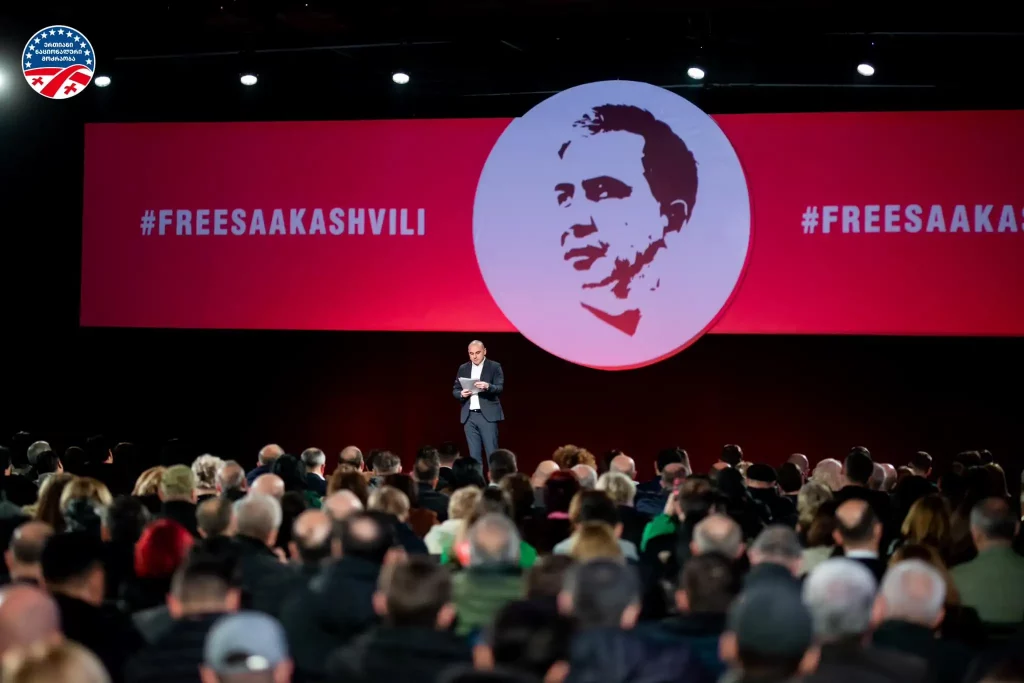
Following the 2020 elections, the most significant opposition force in the republic was the United National Movement party, founded by ex-president Mikheil Saakashvili in 2001. Two years later, Saakashvili and his party team stood at the forefront of the first colour revolution in the post-Soviet space, which went down in history as the “Rose Revolution.” Then, there was a resounding victory in the elections. The united bloc “National Movement – Democrats” receives 135 of the 150 mandates in parliament, and its leader, Mikheil Saakashvili, is elected president with almost 97% of the votes.
The time of reforms, a construction boom and rapid rapprochement with the West began in the life of Georgia. It is turning into a rapidly developing state from a corrupt and impoverished country. During the years that UNM has been in power, Georgia has left the CIS, increased cooperation with NATO and the European Union, and significantly increased the flow of foreign aid. At the same time, the party is launching a large-scale fight against crime and corruption. Police reform is becoming a symbol of the new Georgia. The country occupies a leading position in the rankings of the safest countries in the world. Ordinary people now have electricity, gas, and water in their homes. You no longer need a bribe to get into university, and you can go out in the evening without fear of being robbed. Any document can be obtained from the Ministry of Justice in just half an hour.
The reign of the “United National Movement” will be marked by another event: the five-day August war, after which Russia recognised the independence of the two occupied regions of Georgia. However, by the end of the era of rule, the “United National Movement” will acquire a series of high-profile scandals, develop signs of authoritarianism, and human rights activists will talk about massive violations of human rights in Georgian prisons. It is the prison scandal that will put an end to the party. The Georgian Dream, founded by the oligarch Ivanishvili, won the elections in 2012, and the United National Movement peacefully transferred power for the first time in the history of Georgian independence. A year later, Saakashvili ended his second presidential term.
Today, little remains of the former greatness of the United National Movement. After the transition to the opposition, gradual disintegration began in the “National Movement”. Its leaders and ordinary members started to leave the party at different times. The party has turned into a “donor” for other opposition forces. Today, the central core of the four parties operating in the opposition niche consists of former members of the United National Movement. Scandals constantly rock the party. They started talking about the conflict in the UNM in 2021 after the return to Georgia and the arrest of the party’s founder, ex-president Mikheil Saakashvili.
As a result, two camps formed in the party: supporters of the current chairman, Levan Khabeishvili, who accused ex-leader Nika Melia of passivity in the fight for Saakashvili’s release, and supporters of Melia, who calls Khabeishvili a puppet in the hands of former security officials Vano Merabishvili and David Kezerashvili. Previously, Melia said that UNM was being torn into two parts within nine months. This division occurs due to the status quo created in the party, as well as “injustice, immorality, deprivation of values that the informal rulers in the party emit.”
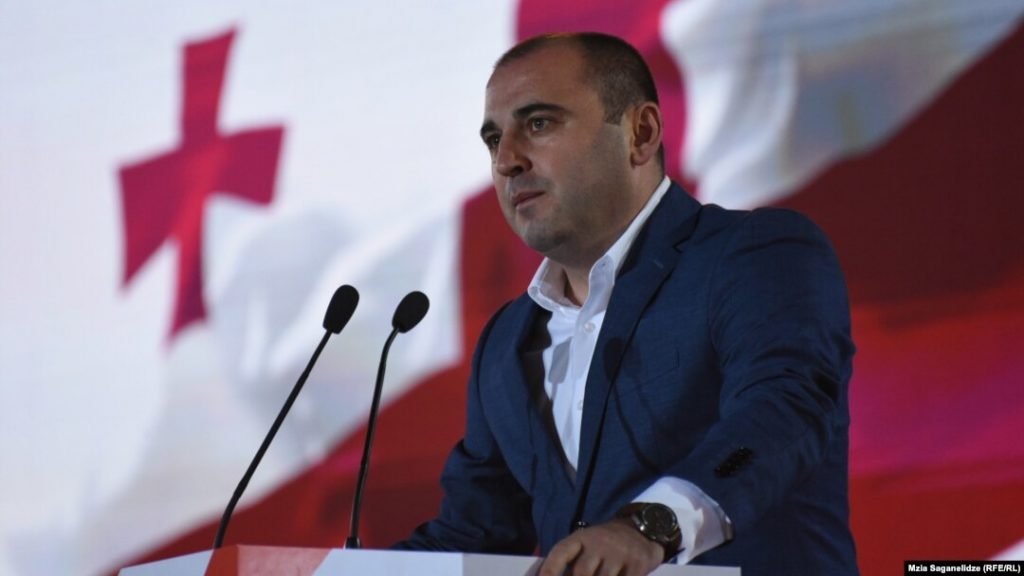
Khabeishvili won the internal party elections in the United National Movement in January 2023. Melia lost by 12 percentage points, receiving the support of 40% of party members. After the elections, Khabeishvili said he would not expel Melia from the party. However, profound personnel changes began in the party, and many of Melia’s supporters in the regions were removed from party posts.
Melia’s assertions that Khabeishvili is only the formal leader of the UNM are reinforced by the factor of Saakashvili, who, while in prison, announced his return to politics. Moreover, one of the UNM members, Sopo Japaridze, began campaigning for the 2024 parliamentary elections on behalf of Saakashvili. Actually, back in August last year, the ex-president, through his lawyers, stated that he was no longer interested in Georgian politics; the main thing was saving lives.
Many observers believe that the politician’s family and supporters then chose such tactics to soften the confrontation and strengthen the arguments in favour of Saakashvili’s release on humanitarian grounds. But later, when the Georgian authorities demonstrated a total disregard for humanitarian law, and the European Court of Human Rights rejected the claim for transfer to a foreign clinic for treatment, this tactic lost its meaning. Then, the ex-president again decided to wage a political struggle. He initiated the creation of a “unity manifesto”, where, among other things, he made a bid for his leadership. It was written in black and white: “The active participation of the founder of the UNM, the leader of the Rose Revolution, the president-reformer gives strength and strengthens the party.” The manifesto notes that under the leadership of Saakashvili, the UNM is actively preparing for the decisive parliamentary elections in 2024, intending to win in the interests of Georgia. The manifesto’s text also stated that all those who signed it agreed with Saakashvili’s leadership in the “United National Movement” and that new and old party members share responsibility among themselves and recognise the legitimacy of the chairman and political council of the party.
According to experts, Saakashvili’s chances of actualising his persona in Georgian politics under conditions of imprisonment are minimal. The ruling party demonstrated calm. Without Georgian citizenship, which Saakashvili lost in 2015 due to obtaining Ukrainian citizenship, he will not be able to return to Georgian politics, according to Mechta.
Representatives of the opposition were also unenthusiastic about the ex-president’s wishes. The leader of the European Georgia party, Giga Bokeria, called this decision “unprincipled and damaging to the Georgian people.” As Bokeria noted, you cannot first declare that you are Ukrainian and you are not interested in Georgian politics and then pretend that such statements did not exist. According to independent opposition member of parliament Teona Akubardia, cooperation between the opposition and Saakashvili only strengthens the current government in the upcoming parliamentary elections in 2024. “In elections, the country’s population should have a variety of choices, while now it is between the current and the previous government,” Akubardia said.
Meanwhile, a new scandal broke out at UNM. At the general meeting of the “United National Movement”, where a manifesto was adopted, which, according to the idea of the convicted ex-president of Georgia, was supposed to become a symbol of unity and outlined plans for the parliamentary elections of 2024, Melia and his supporters did not appear. In response to this, one of the leaders of the UNM, Levan Bezhashvili, stated that the former chairman of the largest opposition party in Georgia, the United National Movement, Nika Melia, can no longer be a member of the party after he refused to participate in the adoption of the unity manifesto.
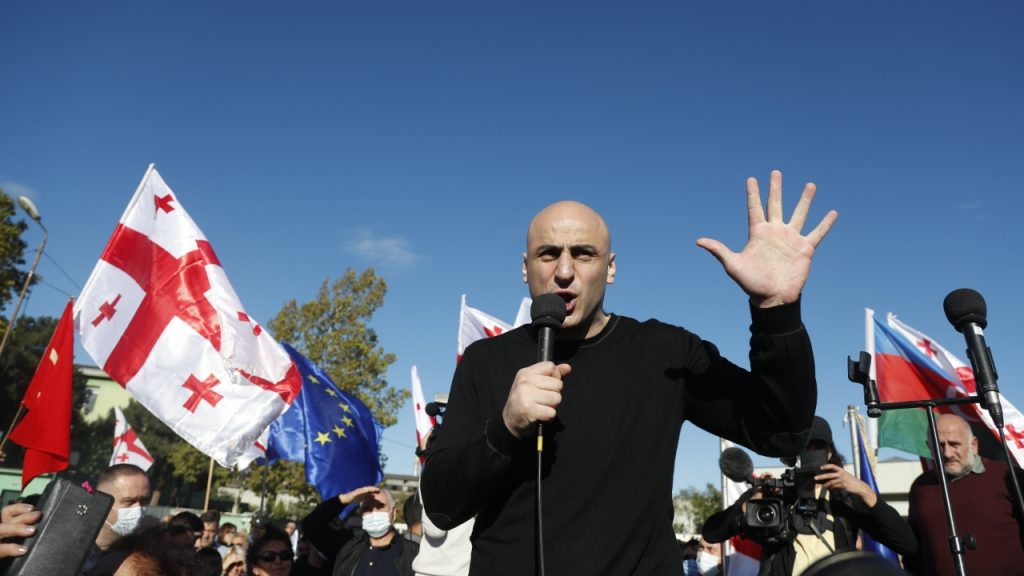
Melia himself did not appear before journalists; however, according to another of his supporters, Dmitry Bidzinashvili, he will not sign the manifesto. “It doesn’t matter whether we sign this manifesto or not; it will not change anything because the new management has not presented a way to solve the problem that we have been discussing for months,” Bidzinashvili said. In December 2023, Melia announced that he was leaving the party and would go to the elections in 2024 with new political strength.
However, despite internal difficulties, the United National Movement remains the largest opposition party in Georgia. According to a survey held by the International Republican Institute of the USA in September-October 2023, the ruling Georgian Dream party would receive 25% of the votes and the United National Movement – 13%.
For the elections, UNM is trying to become the centre of the unification of opposition parties. For this purpose, the party initiated a “victory platform”, which, according to UNM leaders, is being created around the third president, Mikheil Saakashvili. So far, only one opposition force has been included in the “victory platform” – the Agmashenebeli Strategy party of Georgy Vashadze. Until 2016, Vashadze himself was in the ranks of the United National Movement, but then he left it and created his political project, “Agmashenebeli Strategy,” with which he entered parliament in 2020. Notably, the threshold for political parties in the last parliamentary elections was 1%.
Giorgi Vashadze is a well-known and authoritative person in Georgia. He is considered one of the most influential reformers in the first government of the Rose Revolution. It is important to note that the new association did not cause general enthusiasm among the opposition and experts. According to most Georgian political analysts, the “victory platform” has nothing to do with the victory over the “Georgian Dream”; it is rather a mutually beneficial cooperation. Giorgi Vashadze made the right decision since his party alone would not have been able to overcome 5% and get into parliament.
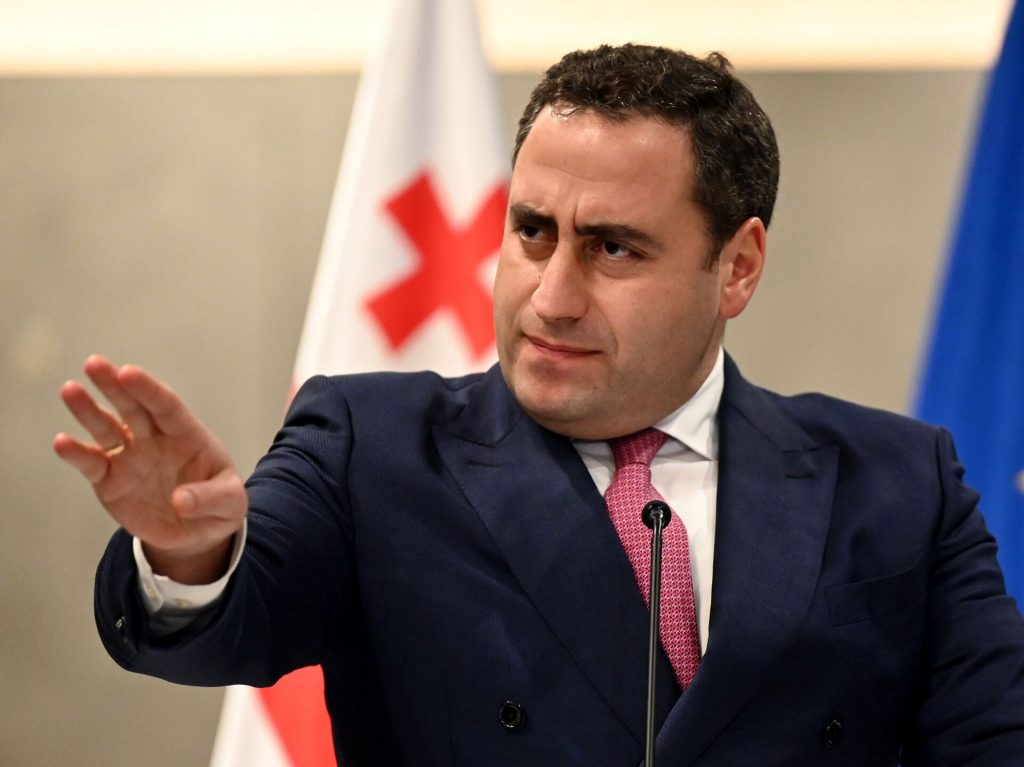
Former associates of Saakashvili were very sceptical about the new alliance. Deputy Khatia Dekanoidze said Vashadze’s appearance will not increase UNM votes: “Nothing special will happen. The “National Movement” has its voters, very specific ones; these people are Saakashvili’s voters, so joining the “Agmashenebeli Strategy” will not add votes; the members of the “Strategy” will simply end up on the “UNM” list, that’s all. Now, the main task of the opposition is to mobilise as many of its supporters as possible, under the conditions of a 5% entry barrier, to attract the maximum number of people in the opposition field so that, in total, the parties gain as much as is necessary to defeat the Georgian Dream.”
It is also very significant that the Agmashenebeli Strategy withdrew from another alliance created in 2022 with the Girchi – More Freedom and Droa parties. Despite his illusory chances of getting into parliament, his former political partners considered it impossible to be in the same coalition with the United National Movement. According to the latest sociological surveys, the prospects of “Girchi – more freedom” and “Droa” are estimated at 2%, with an anti-rating of -18%. Droa leader Elene Khoshtaria wrote on Facebook that despite the positive experience of cooperation with Vashadze, her party does not see itself in an alliance with the National Movement. The “Girchi – more freedom” party responded in the same spirit. The toxicity of the UNM also repels other opposition forces in Georgia, which are looking for new configurations and political alliances on the eve of the 2024 parliamentary elections.
In search of a third force
Numerous surveys by international organisations indicate that against the backdrop of many years of struggle between the two main political parties – the Georgian Dream and the United National Movement – the need for new forces and new leaders in society is exceptionally high. This is evidenced by a survey by Edison Research commissioned by the opposition TV channel “Formula”, conducted in November 2023. Almost 70% of respondents want to see a new party in the parliamentary majority. As is reasonably noted in Georgia, unfortunately, the third force was lost between the pro-government “Georgian Dream” and the “United National Movement”. The Georgian opposition is trying to simultaneously distance itself from the UNM and avoid the similarity of positions with the party in power. However, observers believe she has been unsuccessful in her search for her own identity. In their opinion, the Georgian Dream will benefit from this.
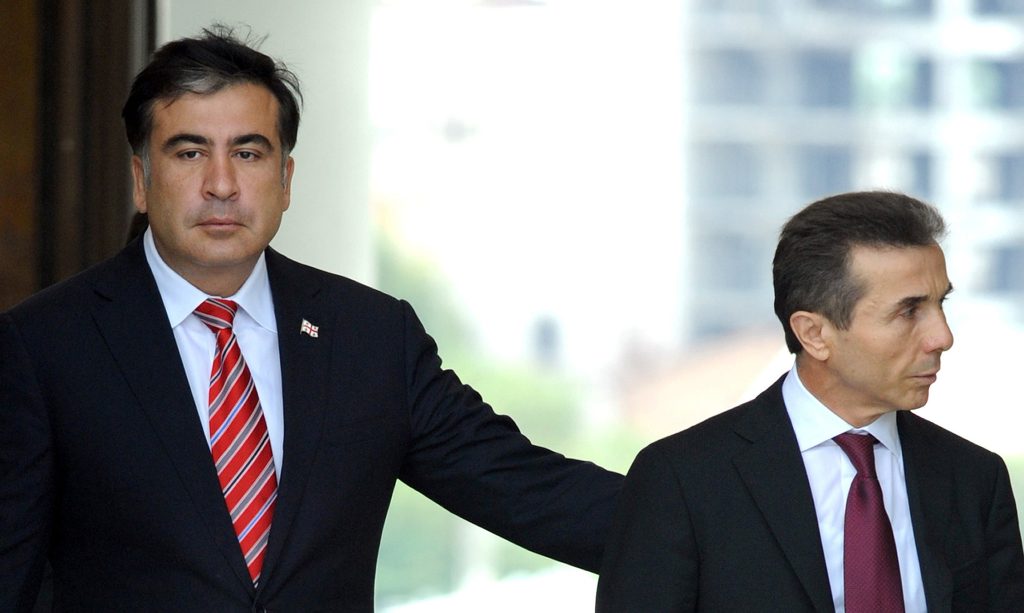
According to the survey mentioned above published by the US International Republican Institute (IRI), the party of ex-Prime Minister of Georgia Giorgi Gakharia, “For Georgia,” is the closest to the old-timers of Georgian politics. She is supported by 4% of voters. Former MP from the Georgian Dream, Eka Beselia, generally believes that the time has come to form a new party based on former comrades-in-arms of the Georgian Dream, who see Georgia only in the EU. And the party of Giorgi Gakharia is most suitable for this purpose. The “For Georgia” party excludes the possibility of party alliances before the elections. They categorically reject the possibility of unification with UNM. “For us, the National Movement is a red line, and we will not have a coalition with the UNM, I can say this unequivocally,” said Mikhail Daushvili, a member of the For Georgia party. According to him, the For Georgia party does not plan to unite with any political party for election purposes. “Our unequivocal position is that for election purposes, we will not cooperate with anyone, I mean with any political party. Both before and after the elections, the red line is UNM.
Some sources note that Giorgi Gakharia may form a pre-election alliance with the current President of Georgia, Salome Zarubishvili. On February 6, the head of state proposed creating a charter for the future – a “Unity Platform for Europe.” She addressed the country’s opposition and called on opponents of the government to stop swearing and confront each other. She noted this is “an incitement to hopelessness and nihilism in society.” However, Giorgi Gakharia hastened to call Zurabishvili’s initiative vague and once again stated: “that the For Georgia party will not unite in the 2024 elections, period. We said it once, and we repeated it. Unfortunately, we have to repeat this very often.”
Not only the party of ex-Prime Minister Gakharia but also the Lelo for Georgia party is distancing itself from the two largest parties.
The Lelo for Georgia party was created in December 2019 by two bankers – the founders of one of the largest Georgian banks, TVS Bank, Mamuka Khazaradze and his business partner Badri Japaridze. They decided to enter politics after a criminal case was opened against them. Following the results of the 2020 parliamentary elections, Lelo for Georgia obtained four parliamentary mandates. In November 2021, Khazaradze was prematurely deprived of his mandate based on his statement, and Japaridze was left without a deputy seat in February 2022 due to the verdict. The court found Japaridze and Khazaradze guilty of financial fraud in 2008, but they remained at large due to the age of the case.
Today, according to the US International Republican Institute (IRI), Lelo’s rating is 2%, which does not yet correspond to their ambitions for leadership among pro-European opposition parties.
Party leader Mamuka Khazaradze published a post on social networks with the caption, “The middle must come together.” As Lelo member Irakli Kupradze later explained, Khazaradze’s statement implied a return to multi-party politics and diversity. Lelo considers it essential to create a new political force as a third force, distanced from the largest opposition party, the United National Movement and the Georgian Dream.
One of the Lelo party leaders, Salome Samadashvili, says that the processes taking place in the opposition have led to the public losing confidence in politicians. According to her, Lelo will return politics to the people: “We will try to formulate proposals that will interest Georgians. Polls show that the main topic for people is Georgia’s European future. In addition, most of society is worried about the lack of prospects and insufficient rates of economic growth.” As the politician notes, Lelo has a plan to pull the country out of this “swamp.”
The party published its Marshall Plan three years ago. Party leader Mamuka Khoradze said, “We wrote the Marshall Plan 3 years ago. Very detailed, very understandable and something that our country needs like air.” In addition, according to Kharadze, the most important part of the opposition struggle for Georgia’s European future will be limiting Russia’s influence. For this purpose, the party presented the “Georgia Defense Act”.
It provides for a tightening of the visa regime for Russian citizens, who today can stay in the country for a year, and also, to protect the labor market, the right of Russians to work in Georgia should be limited. Opposition leader Kharadze also proposed banning the movement of cars with Russian license plates in the country, the participation of Russian companies in government tenders, and introducing an “occupation tax” for Russian businessmen operating in the country. In its strategy, Lelo also demands to stop direct flights with Russia, turn off Russian television broadcasting in Georgia and ban Russian funds and the sale of land to Russian citizens.
In addition, at his party congress, the leader of “Lelo” stated that in Georgia, the old parties and the old mentality must be put to an end, and the exact alternative to all of them is “Lelo for Georgia.”
It is worth noting that Lelo leader Mamuka Khazaradze always looked down on his potential allies in the opposition “guild” and rejected the idea of creating a broad front of “small parties,” inviting interested politicians to join Lelo. Several factors complemented each other – the expectations of the Lelo leaders were too high; in addition, they invested a lot of effort and money in branding the new party and did not want to sacrifice them to the spectre of a united front; they did not consider potential partners strong enough to offer they have equal positions in management structures.
In 2020, hypothetical allies did not want to become just mannequins in the Lelo window, and they had somewhere to retreat; they were not afraid of the one per cent barrier, so the most promising alliances were never formed. And in the elections “Lelo” received 3.15% of the votes. In 2020, “Lelo” (like “For Georgia” in 2021) seemed more robust than it was, a “fresh” party, not burdened with the burden of mistakes. Today, counterparts see the limits of its capabilities much better – their scepticism extends to Gakharia’s party. It is not surprising that at least two groups of politicians and public figures are today working to create a new opposition centre “from scratch” and not on the basis of “Lelo”, “For Georgia”, or some other party.
Today, few voters will be able to determine what exactly are the fundamental (and not purely image) differences between “Lelo” and “For Georgia” and how they, in turn, differ from the “Agmashenebeli Strategy”. The point is different. No matter how pretentious it may sound, the opposition party must be independent of everything except loyalty to its principles and responsibility to voters.
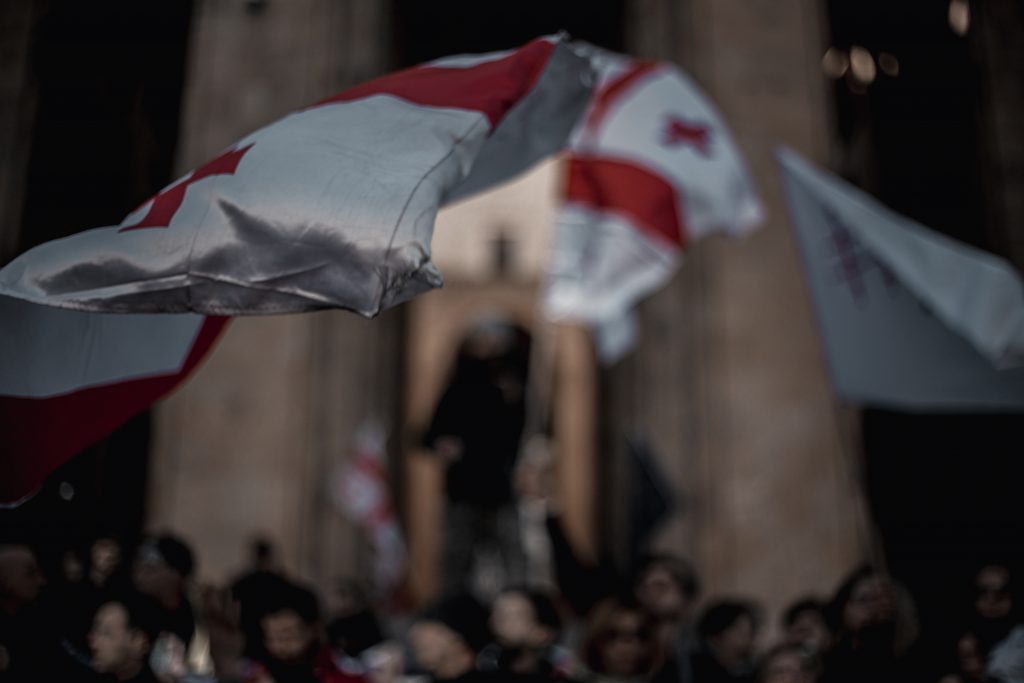
According to most of the Georgian expert community representatives, the opposition, which is located between UNM and GM, does not have its own face. “On the one hand, there is a campaign of discredit on the part of the authorities, which puts them in the same boat as UNM. On the other hand, they have nothing to offer people, there are no clear political and economic programs for overcoming the crisis… In a word, people must see their differences from the authorities. In return, the opposition has taken on the mantle of experts through a shallow level and comments from the screens on the agenda proposed by the Georgian Dream. They do not try to work with people, talk about pressing issues, or offer an alternative program for solving problems. Such tactics are doomed to failure,” says political scientist Archil Gamzardia.
Therefore, the success of minor parties in elections will depend on whether new leaders dare to act without regard to the markers and stereotypes that old and experienced parties impose on them. Will they understand that they only owe it to voters, and these are not just beautiful words, but the very “key” with which they will open the path to their victory over both the “Georgian Dream” and the “United National Movement”?
In general, it can be stated that the political future of Georgia is still uncertain: European integration is hampered by constant accusations of rapprochement with Russia. At the same time, the rapprochement with Russia seems impossible both because of the internal resistance of the elites and the critical non-acceptance of such a path by a significant part of society. On the other hand, the interests of China are becoming increasingly noticeable, developing and strengthening in Georgia to the extent of opportunities and compromises. In such conditions, there is no need to talk about long-term stability. Georgia’s location is too unfavourable from a geopolitical point of view.

